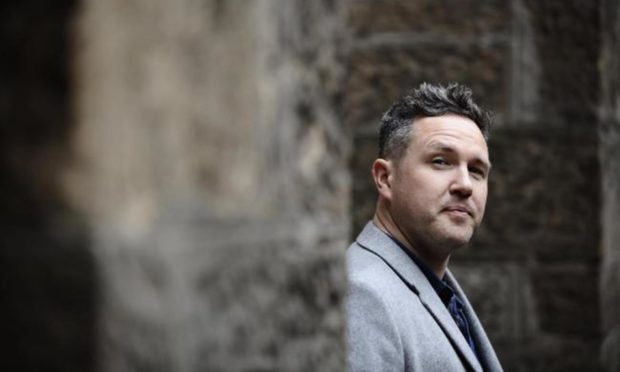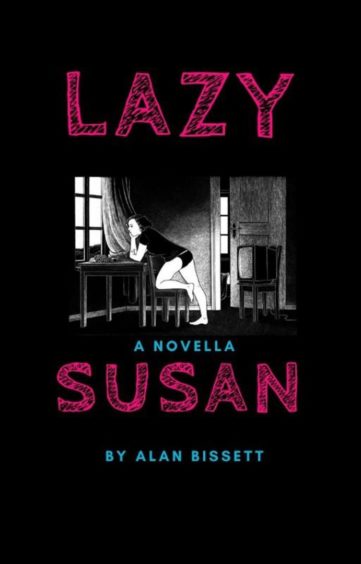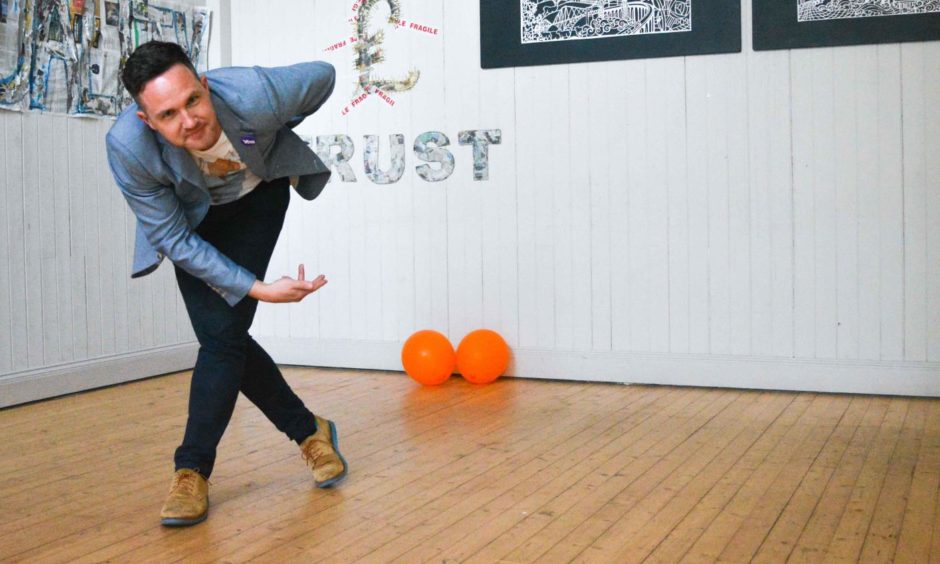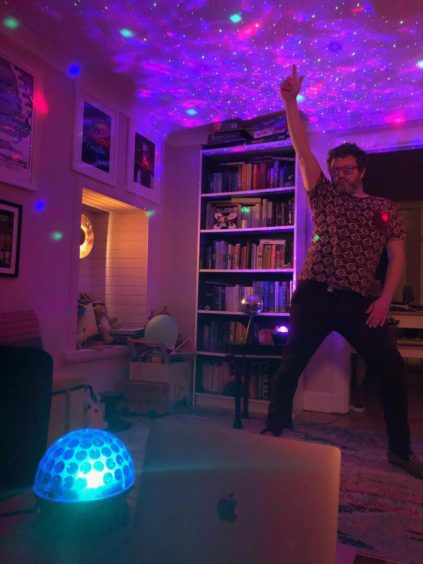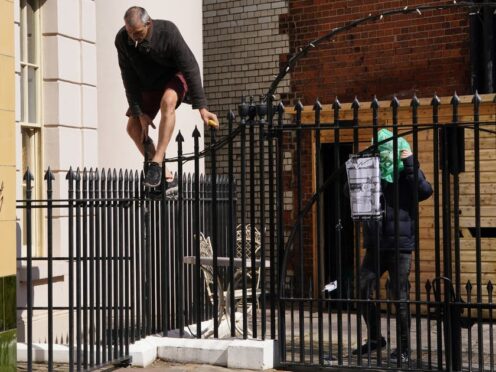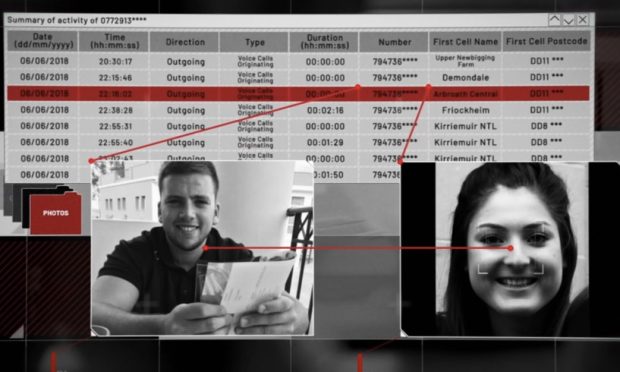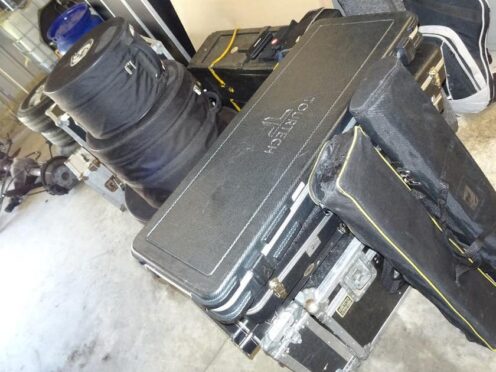Readers can choose what happens next to feisty Fifer Susie, a “Scottish, working-class, Holly Golightly for the influencer generation”.
For the first time in his life, Scots author Alan Bissett spent months on end “creating absolutely nothing” as lockdown took hold.
Then, out of the ashes of 2020 emerged a novella called Lazy Susan. Somehow, he’d managed to power-write a 36,000-word tale charting a wild weekend in the life of a 22-year-old Dunfermline party girl called Susie Q. Martin.
“I’m glad the year wasn’t a total write-off,” Alan admits. “Ideas were percolating away and I couldn’t get the time or the focus to work on them, because the kids were the priority.
“For about five months, I wasn’t creative in any way at all – and that’s the longest I’ve ever gone in my entire life without working on a project. It just stopped.”
Described by Alan as a “Scottish, working-class, Holly Golightly for the influencer generation,” Susie is off to Edinburgh Festival Fringe for a night out, but not before a brief sojourn in Stonehaven.
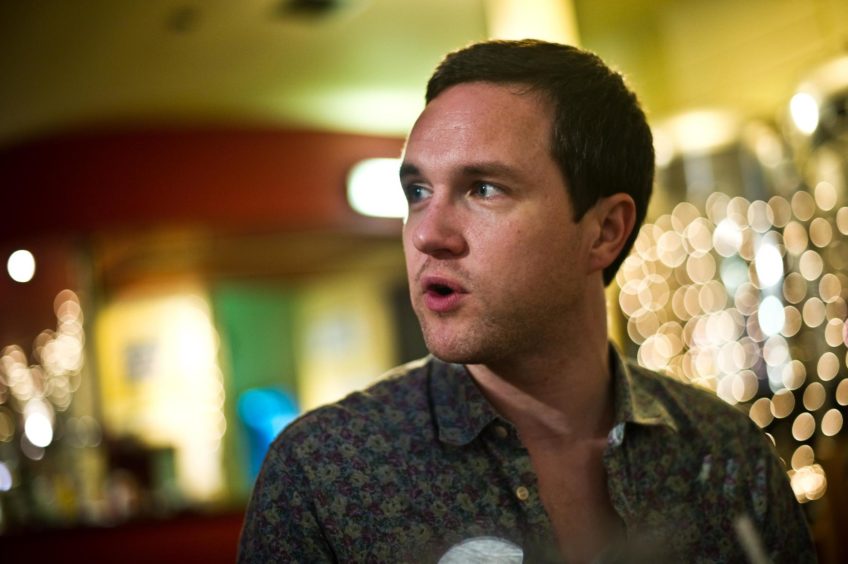
“The whole point about being young is the choices you make end up defining the rest of your life,” he says. “So, we’ve got this girl who’s got one weekend and we give her various choices of things she can do in that weekend – how does that affect the rest of her life?”
For many parents, lockdown heralded the dawn of all kinds of chaos. And if, like Alan, you have two children below the age of five, the phrase “game over” might spring to mind.
One of the main reasons for Lazy Susan hurrying into the world in December last year was Alan had an agreement with his publishers to produce a novella in 2020: “When I signed that contract, I had no idea coronavirus was coming.”
Noughties writer
Alan, 45, first emerged on the scene in the early Noughties, penning books such as Boyracers, The Incredible Adam Spark and Death of Ladies’ Man.
His last novel, Pack Men, was released in 2011 and he has spent the intervening years writing for theatre and television as well as performing in his own stage productions. He lives in a small Renfrewshire village with his partner, the author Kirstin Innes, and their two sons.
As lockdown finally began to ease, Alan seized the opportunity: “Because it’s been so long since I have written prose, I felt maybe this is what I needed to get me back in the saddle.
“So I said, ‘right’, cracked my knuckles and just went for it. I wrote the whole thing quite quickly and that’s what it needed. It needed that focus.”
The novella has an illustrious history, with writers such as George Orwell, Truman Capote, Ernest Hemingway and Robert Louis Stevenson using the form.
“A novella is just a short novel,” Alan says. “It’s too long to be a short story but still something you can publish between two covers. When I asked the publishers at what point a book stops being a novella and starts being a novel they gave me an upper limit of 40,000 words.
“I wasn’t ready to write a full-length novel – you need to clear huge amounts of room in your life and in your head in order to do this. But it did show me I could write a lot of prose pretty quickly and it still be good. It was a real confidence boost.”
Decisions, decisions
Aside from being novella-sized, Lazy Susan has another interesting literary quirk – one that Alan traces back to his childhood love of the Choose Your Own Adventure series.
“They were published in the 1980s when I was first becoming a reader and were mainly centred on fantasy novels,” he recalls. “There would be options like: ‘if you want to fight the big dragon, turn to page 46’ or ‘if you want to hide in a cave, turn to page 100’. You had loads of different storylines and I absolutely loved them because they were halfway between a novel and a game.
“It occurred to me I had never seen that done in an adult novel. It’s a very experimental form because, usually, you follow the storyline the author has set out for you. I also thought it would be a fun read and give people a reading experience they’ve never had before.”
Alan is selling copies of Lazy Susan directly from his website shop and has been pleased at people’s reactions to his quirky character, as well as the structure.
“I’d hoped that people wouldn’t just go through one pathway and think ‘oh, that was nice’ then leave it. I hoped their curiosity would be as such they’d want to go back and complete all the others. What it means is that everyone’s experience of the book will be completely different.”
Susie is a bold and witty young woman from Dunfermline who lives for the weekend, posting make-up tutorials, Marvel film reviews, photos and general banter on her various social media platforms. Her ultimate goal is to become a social media influencer.
Alan admits that despite being daunted by creating her, she was “the character that wanted to be written.”
“As a writer, you are always absorbing other people: the way they talk, their stories, their lives. Before Covid I did quite a bit of travelling because I was always doing shows,” he explains.
Writing Susie
“I think this character had been somewhere in there as a result of me listening to conversations with young folk on trains.
“One of the joys of being on public transport is you get to listen to other groups of people and the way that they interact with each other. You get to soak all that in. I don’t know what it is, but whenever you’ve got a bunch of folk on a train, they seem to presume nobody else can hear them!”
Alan is no stranger to writing, and performing, a female character. His acclaimed Moira Monologues plays are narrated through the eyes of Falkirk’s hardest woman, Moira Bell.
He says Moira was a more familiar voice, since she was from his hometown and also a similar age: “When you’re writing from the point of view of someone who’s a different sex – but also a different generation – that does present its challenges.
“But I also think writing is about being able to cross those boundaries. Writing is about empathy and you have to be able to see the world in a different way from you – otherwise you’d just be writing stories about yourself over and over again.
“Every so often you have to scare yourself and do something that’s outside your comfort-zone. Otherwise you’re not developing or progressing.”
Alan adds: “I didn’t want to write another character from Falkirk, which is where I grew up – and I have written about it quite extensively. So I thought, if it’s taking place on the east coast then what about Fife?”
While most of the action takes place in Edinburgh, Susie does pay a brief visit to Stonehaven: “I’ve been to Stonehaven a few times and it’s quite a picturesque place. It’s a contrast from Edinburgh which, during the Fringe, is absolute pandemonium.”
Social media
Alan isn’t a big fan of social media, describing Instagram in particular as “one giant brag”. “I don’t really use it that much anymore,” he says. “It creates a noise around you. That’s the world we’re living in. I had to face that aspect of her.
“The younger generation is growing up in a different world from the one I did. They inhabit two realities: one is online, which is just a strong as the real world.
“If you look at someone like Susie, everywhere she goes she’s taking a picture of herself to put on Instagram to tell a story that presents her in a way she wants the world to see. I realised we could get a contrast between her different lives.”
Alan was on tour with his Moira Monologues plays at the beginning of last year when Covid-19 closed down theatres and arts venues. He does fear for the future of the industry and his theatrical work remains uncertain for now.
He was also running a club night in his village for local parents who found it hard to get on a proper night out. When the pandemic hit, he took the party online.
“I absolutely love a dancefloor. One of the reasons is it’s a connection with other people. I really missed that, so I wondered – how you could try and replicate it?”
The discos are delivered via Zoom, with Alan sharing a carefully-compiled playlist while joining in the disco ball action. Entry is free, though satisfied revellers can send him a donation via PayPal if they so wish.
“That’s been a really lovely thing and it’s kept me sane. I will do it for as long as people keep wanting me to do it – and also for as long as lockdown lasts.”
Alan Bissett’s Hoose Perty 5 takes place on February 5 from 9pm – 1am.
For more details on Lazy Susan and lockdown discos, visit: alanbissett.com
